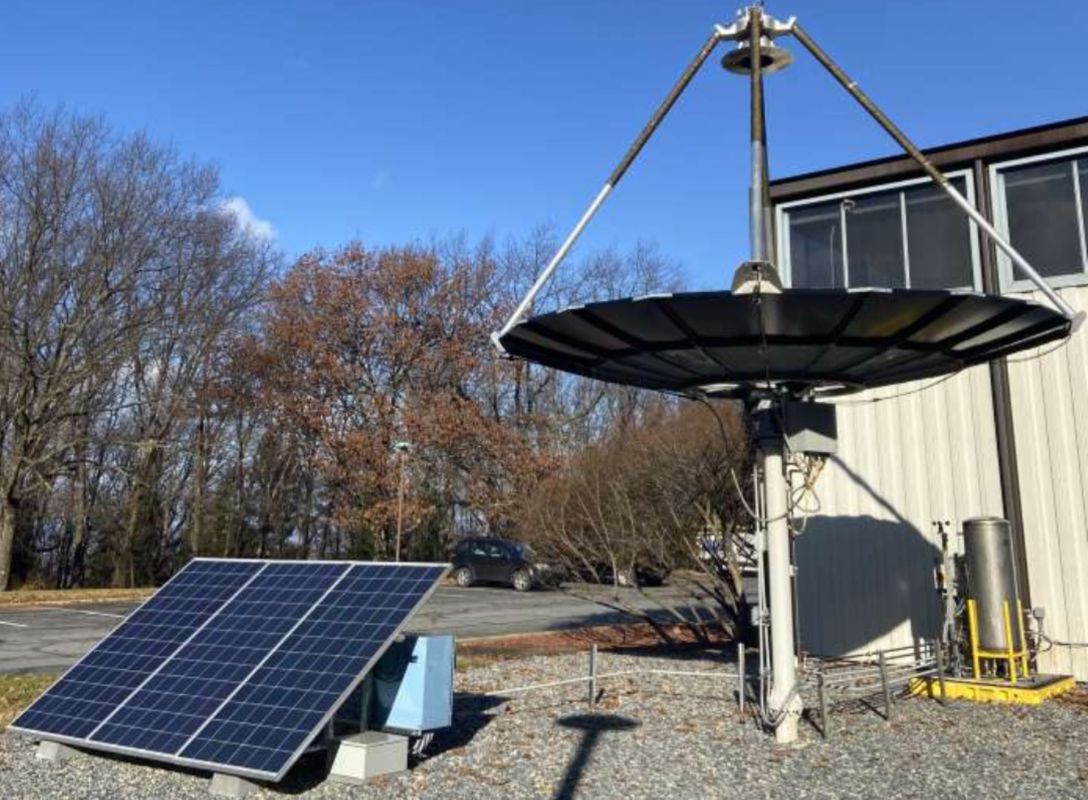Lehigh University in Pennsylvania erected a solar thermal concentrator late last year that "will serve as an instructional tool and test bed for student research projects," according to a news release from the school's P.C. Rossin College of Engineering and Applied Science.
The equipment was touted for its practical applications. Its 10 kilowatt hours thermal capacity will help power the campus, and students in the Energy Research Center have already set up experiments involving the concentrator.
The ERC partnered with Lehigh's Department of Mechanical Engineering and Mechanics and Solarflux Energy Technologies, based in nearby Reading, to land the concentrator, which follows the sun throughout the day to maximize its clean-energy collection.
Solarflux says the parabolic dish is its flagship product, providing "unparalleled energy conversion efficiency, while overall system cost has been minimized through the use of low-cost materials, a structurally efficient design optimized for manufacturing at scale, minimal land use requirements, streamlined installation, and low maintenance requirements."
The company has also worked with Penn State University to field-test the concentrator technology, called the FOCUS.
"The equipment will be used in projects focusing on high-temperature coupled solar thermal energy, thermal energy storage, and thermochemical solar water splitting for hydrogen production," the release stated.
Students in the renewable energy class of professor Carlos Romero, director and principal research scientist of the ERC, recently got their first look at the concentrator. Powered by local photovoltaic panels, it tracks the sun with a two-axis system, charge-coupled device camera, and GPS.
Solarflux co-founder and chief technology officer John Fangman unveiled the FOCUS to the students by showing them the design and how it works, connecting real-world applications to what they had learned in class, according to the release.
"The experience gave students a glimpse into the technology while providing a practical understanding of how renewable energy systems function," it stated.
Join our free newsletter for weekly updates on the coolest innovations improving our lives and saving our planet.









